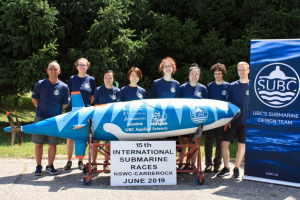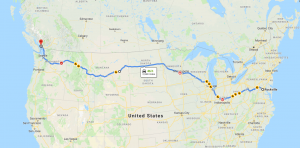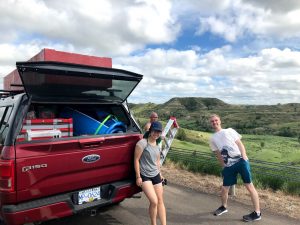Last year was definitely a year of extenuating circumstance and I am not one to enjoy uncertainty. I did however, take a leap and decide to extend my degree instead of graduating in 2021 as I had expected back in 2016 when I started my bachelors degree. In this post I plan to go over my experience in taking an extra year including my reasons, my feelings, and recommendations for anyone thinking about extending their Mech degree.
My reasons for extending my degree
- Burnout and Mental Health – I’m sure this is a shared experience within Mech, but by the end of my 3.5 year I was very burnt out. By this point 2 years ago, I was struggling to keep up with my studies. My grades were declining and instead of being worried or scrambling to catch up, I felt an unnatural apathy. During this period of time, I felt a loss of the enjoyment of studying and learning that once came natural to me, even though the topics we discussed in class were interesting, I felt detached and robotic. Though this was the one of the main reason I extended, it was also a big reason I did not want to extend. Part of me just wanted to push through, but today I am glad I did, I am in much higher spirits and have regained my passion for learning.
- Online Classes – Though the professors tried their best to accommodate and make class as engaging and useful as in-person, there are limitations to online communication. For one, it made comradery, group work and design projects harder. As I was going into my last year and was finally taking the technical electives and courses of interest that I had been waiting my whole degree to take, I wanted to make sure I got the full experience. For example, courses like Orthopaedic Biomechanics (Mech 435) which normally lets students go watch surgeries or Capstone (Mech 45X) were limited in opportunities because of the pandemic.
- Loss of Facilities – One of the biggest advantages of being a Mech student is access to the great facilities available such as the student machine shop and student team spaces. Spaces that I did not have access to last year and I am very excited now that I’m back in school to finish the projects I had planned for my last year.
- Opportunity to Try a New Industry – While deciding whether or not to extend, I did some co-op applications. At the time I had already fulfilled all my term requirements for co-op but extra work experience never hurt anyone. One of my goals during my schooling was to try out as many different industries while I was still a student. Mechanical engineering is a degree which provides a great variety of industries and I wanted to take advantage of the short term internships to try new things. I luckily got an 8 month internship at a great biomedical engineering company which broadened my portfolio.
Emotional Experience of Extending
When I started university in 2016, I worried about things like being able to finish “on-time” and graduating with all my friends. To be honest, now I’m not sure what “on-time” means. It turns out that half my friend group and my fellow Mech Ambassador Hamayun did the exact thing as me. In a way, I still am graduating with a good number of my friends. Some even decided after I did, knowing that someone else would be around for the extra year. Considering that my career will be ~40 years long, will one more year in school matter.¯\_(ツ)_/¯
I am enjoying this year a lot more. My course load is lower, I am taking super interesting courses and my grades are much higher than before. I am more productive, the burnout has significantly improved and even though I was very worried about whether I made a good decision initially, I have no regrets today and would encourage those who relate to any of the reasons I extended, to explore the opportunity.
Recommendations
Here are some things to consider if you are thinking of extending your degree based on my experience:
- Consider your financial situation – I worked co-op for 8 months of my extension and I am also a local student. Unfortunately, scholarship or other financial limitations may limit your ability to follow in my footsteps. If you are an international student, consider the price of staying around UBC for the extra time if you plan to stay in Vancouver during the extension.
- Check your course requirements when you come back to school – One of my necessary courses to graduate was Mech 429 which this year was moved to a 3rd year course and became Mech 329. This meant that the course wasn’t in the fourth year standard time table. The Mech Student Services Advisors are super friendly and helped me register smoothly (and easily) into the course with a simple email. They can help you to navigate any changes in course requirements.
- Make friends in your classes – Group projects can run a lot smoother when you know people in your classes. Unfortunately one of the bi-products of extending is knowing less people in your classes. That being said, I have group projects in all but one of my classes this term and have been able to find great team mates.
- Have some fun – Burnout won’t go away without some real relaxation – SO RELAX. I spent a lot of time playing video games, hanging out with friends (pandemic permitting) and exercising.


